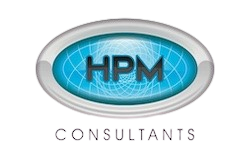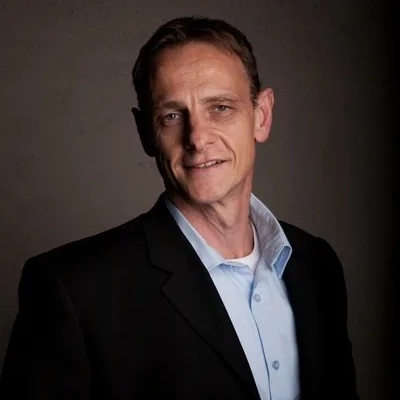Expert witness testimony can play a crucial role in the outcome of a legal case, offering specialized knowledge and insights that lay the foundation for a persuasive argument. From complex delay damages litigation to construction claims trials, the proper use of expert witnesses can bolster a case’s credibility, sway a jury, and even determine its outcome.
To ensure you maximize the value of your construction claims expert witness testimony, there are strategic approaches to consider throughout the litigation process. This blog will explore these strategies in detail.
1. Understanding the Role of Expert Witnesses
Before diving into strategies, it’s essential to understand the core role of an expert witness. Unlike fact witnesses who testify about events they experience, expert witnesses provide opinions based on their expertise in a particular field.
These opinions help clarify complex technical or scientific issues that would be beyond the average person’s comprehension. Maximizing their value starts with knowing what they bring to the table and how their specialized knowledge can strengthen your case.
2. Selecting the Right Expert Witness
The effectiveness of an expert witness begins with choosing the right person for the job. Not all experts are created equal—credentials, experience, and communication skills are key factors. It’s important to select an expert who has significant experience in the specific field relevant to the case.
Look for individuals with a proven track record, courtroom experience, and the ability to explain complex issues in a clear, understandable manner.

3. Verify Credentials and Expertise
Once you have identified potential experts, thoroughly vet their credentials. This involves reviewing their education, certifications, and professional experience. Doing background checks on any publications or previous testimonies they’ve provided can help you gauge their credibility.
Moreover, make sure their expertise directly aligns with the specifics of your case. Even the most qualified expert in one field may fall short if their knowledge does not directly apply to the case at hand.
4. Prepare the Expert for Court
Even the most experienced expert witnesses need to be well-prepared for testimony. This preparation involves ensuring they have a deep understanding of the case facts, the legal issues at stake, and the opposition’s strategy.
Work with your expert to discuss potential questions from your side and opposing counsel so that they can anticipate challenges and remain confident on the stand. An expert who appears well-prepared and composed will lend credibility to your case.
5. Clarify Key Points for Testimony
One of the biggest challenges in using expert witnesses effectively is the potential for their testimony to become too technical. Jurors or judges without the necessary background might find themselves lost in jargon or overwhelmed by data.
Collaborate with your expert witness to identify key points of their testimony and ensure these are communicated in clear, concise language. Simplifying complex concepts without losing their substance can make a difference in whether the testimony resonates with the court.

6. Align Testimony with Case Themes
An expert witness’s testimony should align with the broader themes of your case. Whether you are building a narrative of negligence, fraud, or another legal issue, make sure your expert’s opinions support this storyline.
Integrating their insights into your overall case strategy will provide a consistent message to the court and create a cohesive argument that is easier for jurors to follow.
7. Addressing Opposing Expert Testimony
In many cases, the opposing side will also present their expert witness. Being prepared to challenge this testimony is essential for maximizing the value of your expert. Review the opposing expert’s credentials, methods, and conclusions with your expert to identify potential weaknesses.
A well-crafted cross-examination or rebuttal can diminish the opposing expert’s influence while reinforcing the credibility of your witness.
8. Ensure Objectivity
One of the most important factors in making expert witness testimony persuasive is maintaining the appearance of objectivity. If an expert appears biased or overly invested in the outcome, their testimony can lose credibility.
Experts should avoid using overly emotional language or appearing too eager to support one side. Their role is to present the facts and their interpretation of those facts based on their expertise, not to advocate for either party.
9. Use Visual Aids Effectively
In many cases, expert witnesses explain complex information that may benefit from visual aids. Charts, graphs, models, and other visual elements can help clarify their testimony and make it more accessible to the jury or judge.
Work with your expert to create visuals that highlight key data points and support their conclusions. This reinforces their testimony and helps keep the court engaged and focused on critical information.
10. Anticipate Daubert Challenges
In federal courts and many state courts, Daubert challenges can be raised to question the admissibility of expert testimony. These challenges argue that the methodology or principles used by the expert are not scientifically valid or relevant to the case.
To protect your expert’s testimony from being excluded, ensure that their opinions are based on sound, peer-reviewed methods and that they can clearly explain their process. Be prepared to defend their qualifications and approach if a Daubert challenge is brought.

11. Maximizing Credibility on Cross-Examination
Cross-examination is often where an expert witness’s credibility is tested. Opposing counsel will attempt to discredit your expert by questioning their qualifications, methods, or objectivity.
To maximize the value of their testimony, prepare your expert to handle cross-examination with confidence. They should be ready to respond to challenging or leading questions without becoming defensive or evasive. Staying calm, professional, and consistent in their answers will help maintain credibility throughout the process.
12. Post-Testimony Reflection and Follow-Up
Once your expert witness has completed their testimony, it’s important to evaluate their performance. Reflect on what went well and where there may have been room for improvement. If the case is ongoing, consider debriefing with your expert to gather their thoughts on their testimony and prepare them for any future involvement.
This follow-up process ensures that both you and the expert are better prepared for future testimonies, and it can provide valuable insights into how their testimony was received by the court.
The Bottom Line
Maximizing the value of expert witness testimony is a multifaceted process that begins long before the expert takes the stand. From carefully selecting the right expert to ensuring they are prepared for cross-examination, every step requires careful consideration and strategic planning.
You can bolster the credibility and effectiveness of your expert witness by taking these strategies into account, increasing your chances of a successful outcome in court.
Unlock the Power of Expert Witness Testimony!
Maximize your case’s potential with HPM Consultants! Our experienced team specializes in selecting and preparing construction claim expert witnesses who can strengthen your arguments and enhance credibility.
Contact our delay damage experts in San Diego today to learn how we can help you achieve success in your legal battles!



